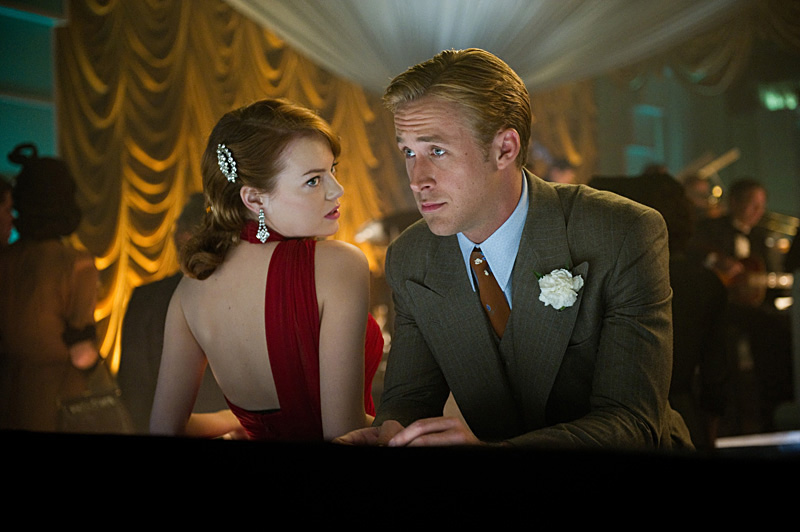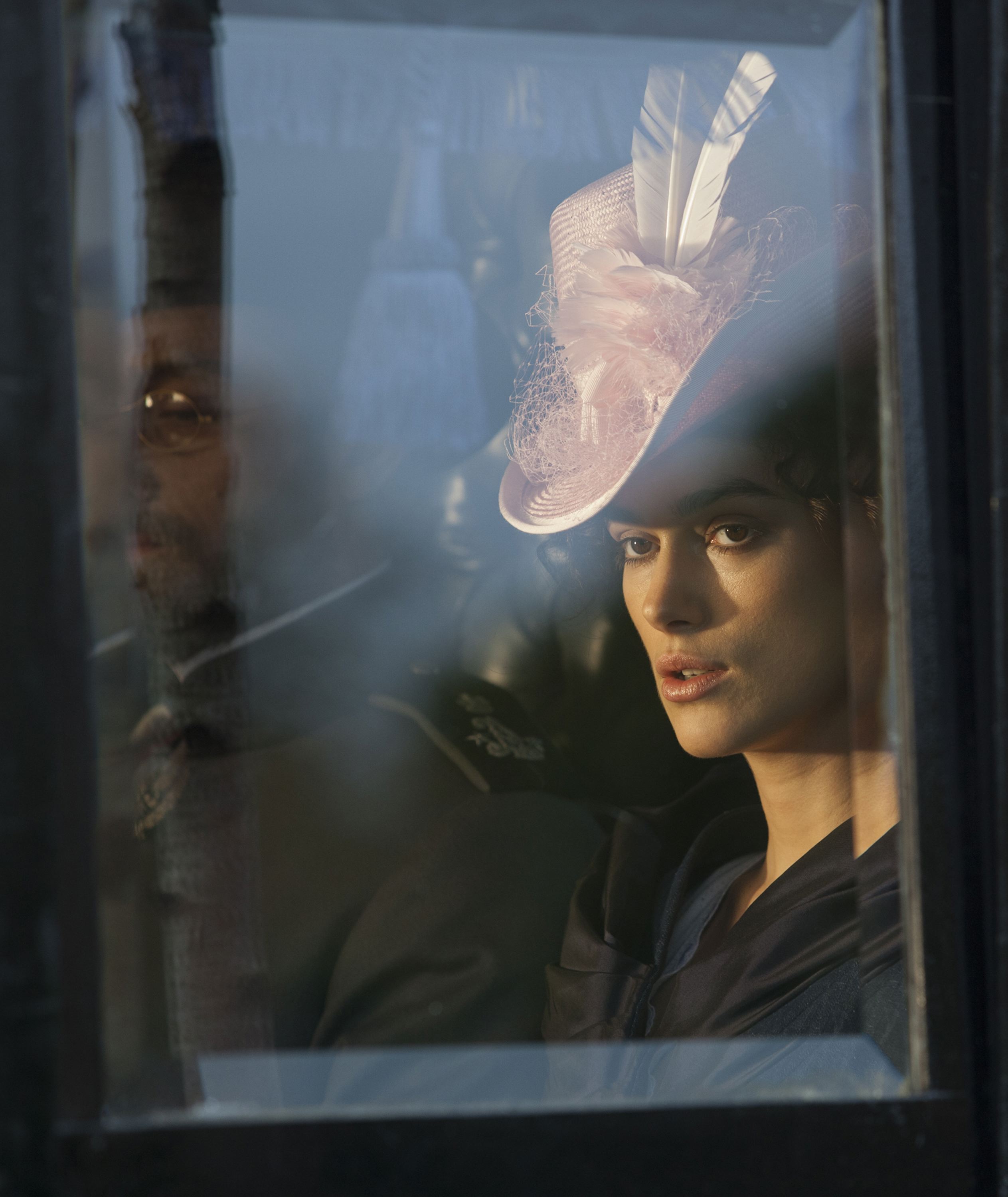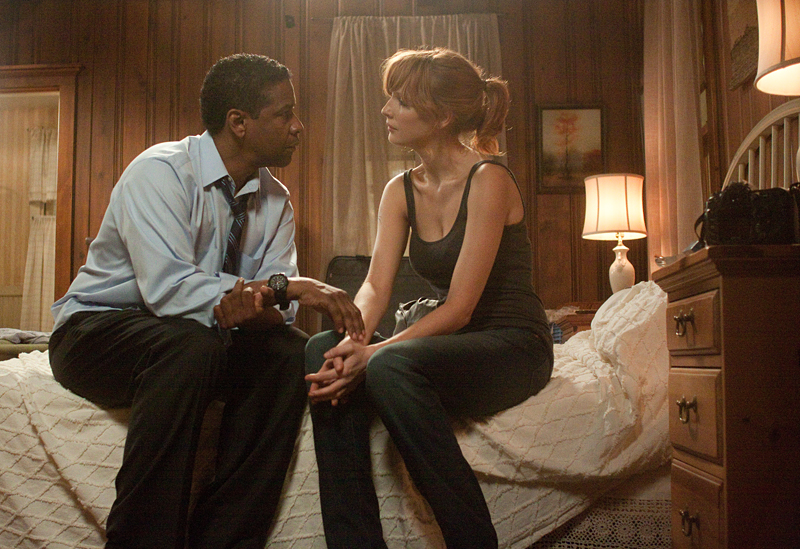Oliver Stone’s sequel doesn’t have the clean, fable-like arc of its predecessor, Wall Street, the tale of the Fox and the Gekko (Charlie Sheen’s upstart broker Bud, Michael Douglas’ Wall Street player Gordon). Only the buccaneer charisma of Douglas’ signature role obscured the “Clean business, clean soul” moral of Wall Street, released two months after 1987’s Black Monday. But everything is so much murkier now in Wall Street: Money Never Sleeps.
The business pages have begun decoding Wall Street 2: Electric Boogaloo, with pieces in The New York Times and The New York Observer matching the film’s creations to real-life models: The white-shoe “Keller-Zabel” firm, for example, is a Bear Stearns/Lehman Brothers amalgam.
They employ whiz-kid proprietary trader Jake Moore (Shia LaBeouf), a specialist in alternative energy, whose story begins in oblivious, pre-crash 2008, as he sights a gathering storm in the gray, lost expression of Lew Zabel (Frank Langella), managing partner and his father figure. Foundered by rumored toxic subprime debt, Lew goes before the Federal Reserve Board, a three-ton conference table of the old, the white, and the ugly, including Eli Wallach as a relic who predates the income tax, ending every proclamation with a fluttering bird call. Hope of clemency is cut off when Mephistophelean hedge-fund manager Bretton James (Josh Brolin), of Churchill Schwartz, leans into frame: “Your valuations are no longer believable” are the words that drop like a guillotine.
Negotiating a humiliating fire sale in payback for a grudge from the dot-com bubble burst, James leaves Zabel for dead—and Jake goes looking for revenge and a new mentor. One possibility is the estranged father of the girl he’s going to marry, Winnie Gekko (Carey Mulligan, pure chloroform). Coming out of Sing Sing in the film’s prologue, Dad Douglas’ aquiline profile could belong to a hungover Founding Father. Made an example of by the SEC and spurned by his only relation, Gekko has become a prophet in the wilderness of financial doomsday, hawking his book Is Greed Good? on the lecture circuit. “You’re the NINJA generation—no income, no job, no assets,” he tells a crowd of 20-somethings, including Jake, who starts meeting with Gekko behind Winnie’s back, pumping the guru for advice in exchange for facilitating a family reunion. Jake’s other role model is his new boss—James himself. Impressed by the kid’s sabotage attempts, James keeps his enemy closer at Churchill Schwartz.
LaBeouf, whose wholly inexplicable celebrity suggests he has compromising photos of God, is tasked with reflecting the film’s subtler dilemmas, such as whether Zabel’s honest incompetence is nobler than James’ wicked efficiency. But projecting ambition through a pert frown and intent gum-chewing, he’s flat and dull where he needs to gleam from both sides of a divided loyalty. There’s no sense of moral suspense in Jake and James’ uneasy partnership, and when master and pupil face off after taking a foreplay motorcycle race through the woods, bantamweight Jake looks lost in his leather biker togs. Tellingly, LaBeouf is most convincing opposite Susan Sarandon, playing his McMansion-flipping mother.
“It’s very hard to do a financial movie, to make stocks and bonds sexy and interesting,” Stone told Fortune on Wall Street‘s 20th anniversary, before a bull market for white-collar wickedness greenlit a follow-up. He does his utmost: In addition to his beloved stop-motion scudding clouds, we have eccentric cell-phone split-screens and Bloomberg terminal readouts superimposed over images. The Dow Jones arches and plunges along downtown’s skyline; a spiraling crane shot rises alongside Philip Johnson’s Lipstick Building. And while the sequel subtitle suggests 24-hour enmeshed world markets, new internationalism is limited to a second-unit trip to London (Gekko models smashing Savile Row suits) and a visit from some Chinese investors that prompts a hoary cliché as Jake—surprise!—whips Mandarin fluency out of his back pocke t.
The “stocks and bonds” story moves along nicely, in fact, all headlines and hambone, pissing contests and Brolin demolishing his office with an old-master canvas. It’s Jake’s the-personal-is-professional merger with the Gekko family that shows a tendency to melodrama unredeemed by wit. Working in the good-guy field of “saltwater fusion,” he’s no idealist. “The only green is money, honey,” he tells the fiancée, whose pretty Swiss bank account he’ll sweet-talk his way into while clandestinely meeting with Gekko, who’s working angles all his own.
“We’re all mixed bags” is the conclusion of the unwieldy mixed bag Money Never Sleeps. If barely prosecuted, the real players in our most recent crash face a long pop-culture pillorying. That is not, however, how Stone works; his conclusions regarding power are best summed up by the hippie chick at the Lincoln Memorial in Nixon: “You can’t stop it, can you? Even if you wanted to. It’s not you. It’s the system.” Floating off on a faux-naive happy ending this time, one takes the lesson that there are no villains—or that villains are all there are.








